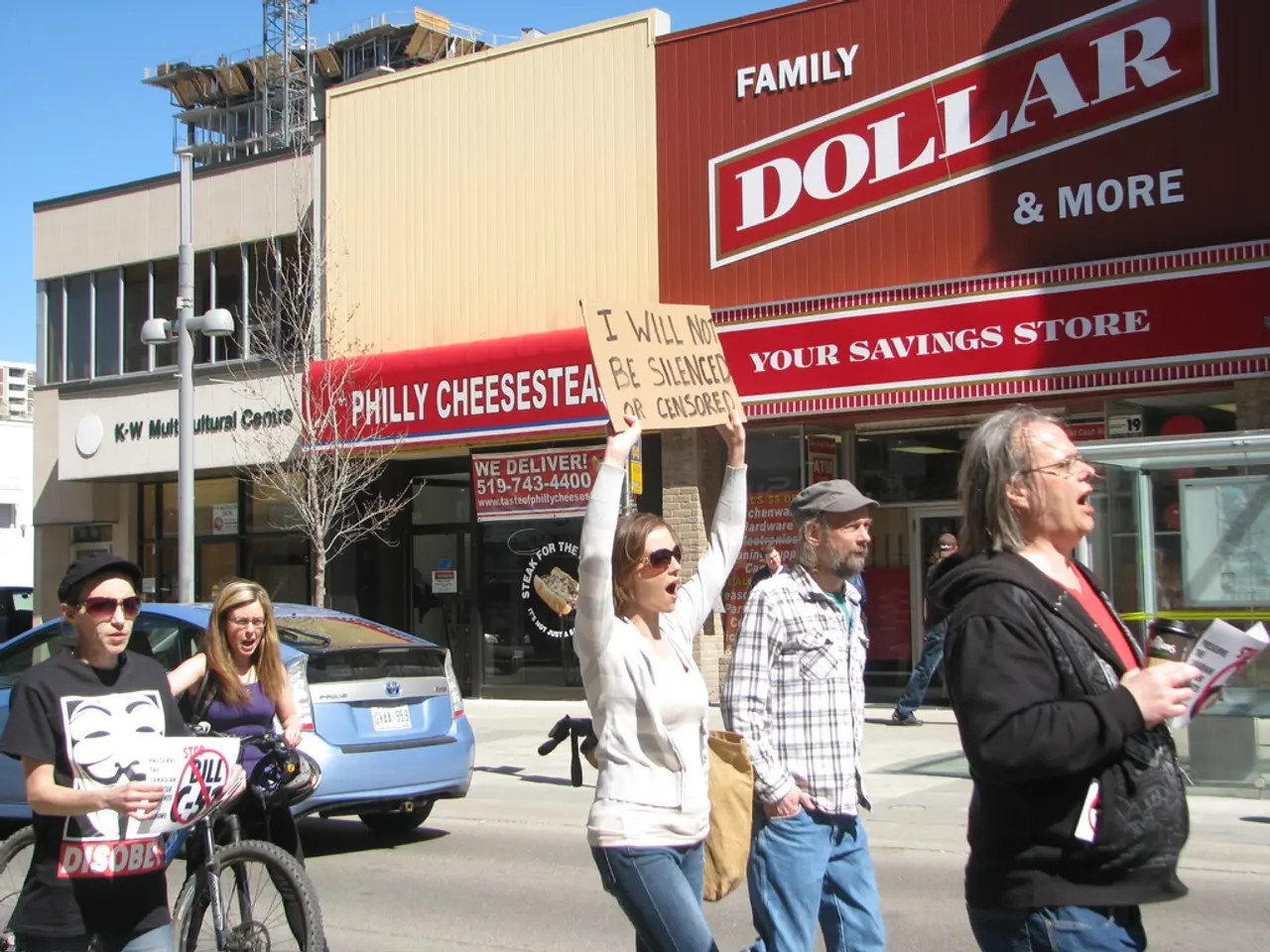U.S Federal Reserve's meetings overshadowed due to Trump's tariffs imposition
A fresh take:
Are Trump's tariffs kicking the U.S. economy where it hurts?
That's the burning question as the Federal Reserve (Fed) grapples with maintaining stable inflation and a robust labor market in the world's economic powerhouse. But make no mistake - the Fed ain't buying Trump's claims that his tariffs won't send consumer prices soaring and won't slow down economic growth. Instead, they're bracing for higher prices and a dampened economy.
Fed Chair Jerome Powell, whose term ends in a year, is clear as crystal: "Every Tom, Dick, and Harry in the know reckons we'll see a sizable hike in inflation in the coming months due to these tariffs, 'cause someone's got to foot the bill." He also warned that you and me, the average Joe, would feel the pinch.
"Tariffs will hike inflation and zap growth," said Powell. "But listen, the impact of tariffs depends, inter alia, on their magnitude. Sure, we figure somewhat lower tariffs now, but there's plenty of uncertainty out there. Higher tariffs, though, will jack up prices and slam the brakes on economic progress," said Powell.
You guessed it - the U.S. central bank keepin' interest rates as they are, despite Trump's relentless demands to quickly lower them. Rates remain elevated at a range of 4.25 to 4.5 percent, but why? Because the future's one big question mark thanks to tariffs.
The Fed expects a chill in economic growth this year compared to earlier projections. Their new estimate: a mere 1.4 percent growth, a drop from a 1.7 percent estimate in March. They're also expecting higher inflation, at 3.0 percent, up from 2.7 percent in March. So, what gives? Why the sudden slowdown and inflationary spike? Trump's tariffs, that's who!
But what's Trump's angle with lower interest rates? Well, the U.S. central bank's independence is enshrined in law, but that ain't stopped Trump from screamin' for lower rates to supercharge the economy even more. And he ain't shy about makin' personal attacks on Powell. Last week, he called him a "dummy" and on Wednesday, just before the Fed's decision, he labeled him a "moron." He occasionally even suggests the Fed should mimic the European Central Bank's interest rate drops, which have recently been lowered to a smidgen over 2 percent.
But in the Fed's eyes, there's no desperate need for interest rate action right now: inflation is hovering near its 2 percent target, and the labor market's in tip-top shape. Plus, uncertainty abounds due to Trump's tariffs.
Since taking office in January, Trump's been slapping high tariffs on goods from various nations, makin' 'em cost more to import.
Enrichment Data Insights:
- The tariffs are predicted to push up prices, causing short-term inflation that Fed members anticipate to be temporary rather than a persistent trend[1][2][4].
- Economic growth is expected to decelerate due to the tariffs, mainly because of the pass-through of higher costs and the slowdown in consumption and investment as a result[1][2][4].
- The Fed has been passive regarding interest rate changes, monitoring the evolving situation before making moves, as lowering rates too early might exacerbate inflation pressures generated by the tariffs[1][4].
- Despite legal protection for the Fed's independence, Trump has regularly demanded lower interest rates to propel the economy further[3].
The Fed expects tariffs, implemented by President Trump, to significantly increase inflation and slow down economic growth. In fact, they anticipate a sizable hike in inflation due to these tariffs.
The ongoing trade tensions and tariffs are causing uncertainty in the market, compelling the Fed to remain cautious about lowering interest rates, despite President Trump's consistent demands for rate reductions.




